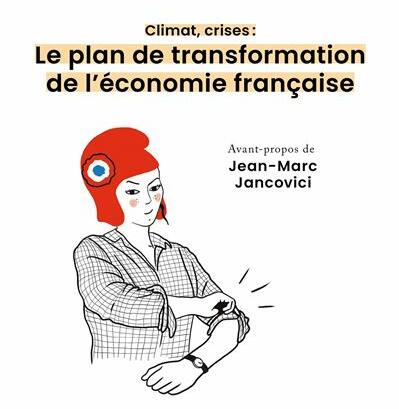The Shift Project publishes this Thursday, May 27, 2021, a deep-dive study on the potential risks weighing on Europe’s oil supplies – a question that has remained remarkably absent from the EU’s energy and climate policy while it is about to present a set of measures to reach its objective of 55% reduction in GHG by 2030.
About the publication
Carried out by France’s leading oil experts and commissioned by the French Defence Ministry, the analysis concludes that total oil supplies to the EU are likely to drop by 10 to 20% over the 2030s, as compared to its current 2019 level. This outlook remains valid even when considering the highest predictions on “light tight oil” (LTO) production in the United States, mostly because there is no reserve large enough to make up for the current production decline.
The study from The Shift Project analyses the outlook for the future oil production from the 16 main EU current suppliers by 2030 and 2050. Although the EU’s crude oil imports had fairly diversified origins in the early 1990s, the share of imports from thee 16 countries went from 65% in 1990 to 95% in 2018. Gathering most of the world’s major oil producers, these countries include by order of importance: Rusia, Iraq, Saudi Arabia, Norway, Kazakhstan, Nigeria, Libya, Azerbaijan, Iran, the United Kingdom, the United States, Mexico, Algeria, Angola, Kuwait, and Egypt.
Based on a critical assessment of the data from the Norwegian company Rystad Energy, a strong reference in the fossil-fuel industry, the results show that:
- All 16 countries show a declining trend in new reserve discoveries, and the size of new fields in operation also tends to decrease overtime.
- 14 out of the 16 examined countries demonstrate a decline in production or a level lower than the maximum level observed in the past.
- The depletion rate of the accumulated discoveries to this date in the 16 countries is close to 70%, and the time lag between identification and development is increasing is all countries. This is due to the scarcity, over the last ten to thirty years, of significant new oil fields with a quality level or geographical location that would justify development within the timeframe previously in force in the industry.
Outside LTO resources from the US, the outlook for the aggregated production from the 16 countries in the scope of the report is a decrease of about 12% in 2030 compared to 2019 levels, and potentially a sharper decline before 2030, if economic and operational constraints related to the exploitation of increasingly smaller fields are more significant than estimated. As of the 2030s, there is no development, whether through new discoveries or potential exploration, that will be able to stop the decline in aggregated crude oil production. This trend appears irreversible.
As regards LTO production in the US, many uncertainties remain. The study includes a high and a low trajectory, both showing a growth potential lower than in the 2010s and a decline in the 2030s. This confirms that the predictions of the study remain valid even when considering the role of LTO.
The EU has so far not assessed the risks and potential impacts from these projections. Nevertheless, such an assessment is important since in addition to the decrease of global oil supplies, the EU’s share of the global market will likely be affected by two other factors. First, the increase in domestic consumption in many exporting countries which is gradually eroding their export capacity, and thus exacerbating the risk of a squeeze on net importing countries. Second, the emergence of new, large consumer countries on the global oil market, like China and India, who are competing for crude oil supplies with developed countries, whose demand for crude oil remains massive. For reference, the EU currently imports about 10% of global oil production, similar to China.
These prospects from major oil suppliers could expose the EU and its Member States to new and unassessed risks, should the pace of “peak oil” be faster than the impact of EU policies to reduce oil consumption.
This study from The Shift Project deepens the analysis of issues already explored in a previous report in June 2020. The main author, Olivier Rech, is a renown oil expert, author of the oil section of the World Energy Outlook (2007, 2008 and 2009) from the International Energy Agency. Associated experts are Marc Blaizot, a geologist by training, former Director of Exploration at Total and member of ASPO, French association for the study of oil and gas peaks; and Alain Lehner, engineer and Director of the Reservoir Development division and Chairman of the Reservoir Committee at Total from 2004 to 2011.
Contacts
Matthieu Auzanneau, Director of The Shift Project and Coordinator of the study matthieu.auzanneau@theshiftproject.org
Ilana Toledano, Communications Officer
ilana.toledano@theshiftproject.org +33 6 01 19 64 04

